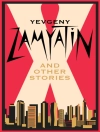Woven coverlets have appeared in several guises within the history of folk textiles. Created on four-harness looms, coverlets made in the nineteenth-century American South typically featured colored wool and cotton threads woven into striking geometric patterns. Although they are not as well known as other textiles and domestic objects, “overshot” coverlets were, and continue to be, significant examples of material culture that require tremendous skill and creativity to produce. They also express currents of conformity and dissent.
In addition to being pleasing to the eye and hand, “overshot” coverlets have advanced a variety of social and political ends. At times exhibited in slave quarters along the seaboard in Georgia and South Carolina in association with plantation properties, they also appear in piedmont areas attached to the antebellum yeomanry, in the context of nationalist craft revivals, and in white-box contemporary art.
With Overshot, Susan Falls and Jessica R. Smith analyze what we can learn by examining the exhibition and interpretation of these materials within American public history. By showing how geometric overshot coverlets can be understood in relationship to the global economy and within politicized cultural movements, Falls and Smith demonstrate how these erstwhile domestic, utilitarian objects explode the art/craft dichotomy, belong to a rich narrative of historical art forms, and tell us far more about American culture today than simply representing a nostalgic past, particularly with regard to ideas about race, class, nationalism, women’s labor, and the separation of private versus public spaces.
Tentang Penulis
JESSICA R. SMITH is a professor of fibers at the Savannah College of Art & Design whose work has been exhibited at Design Miami, Cooper Hewitt, and the Walker Art Center. She is the author of “Textiles of the Lowcountry: Charleston and Savannah—Collecting, Preserving, and Narrating.”












